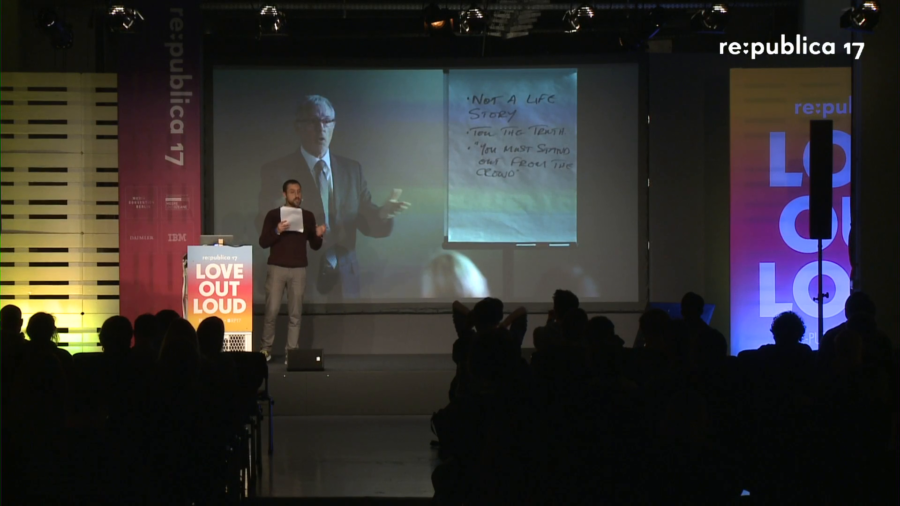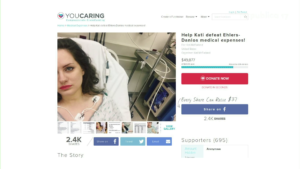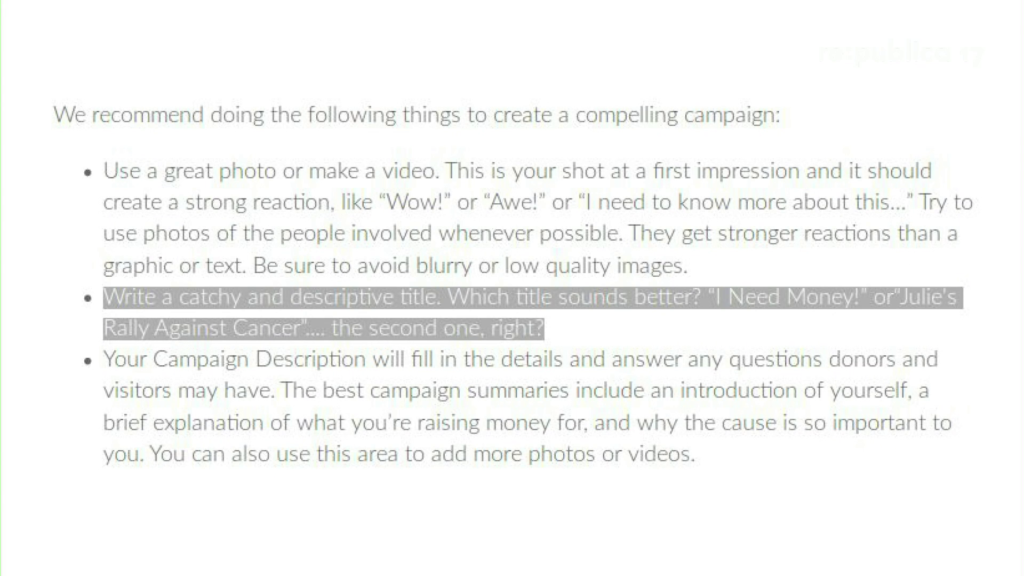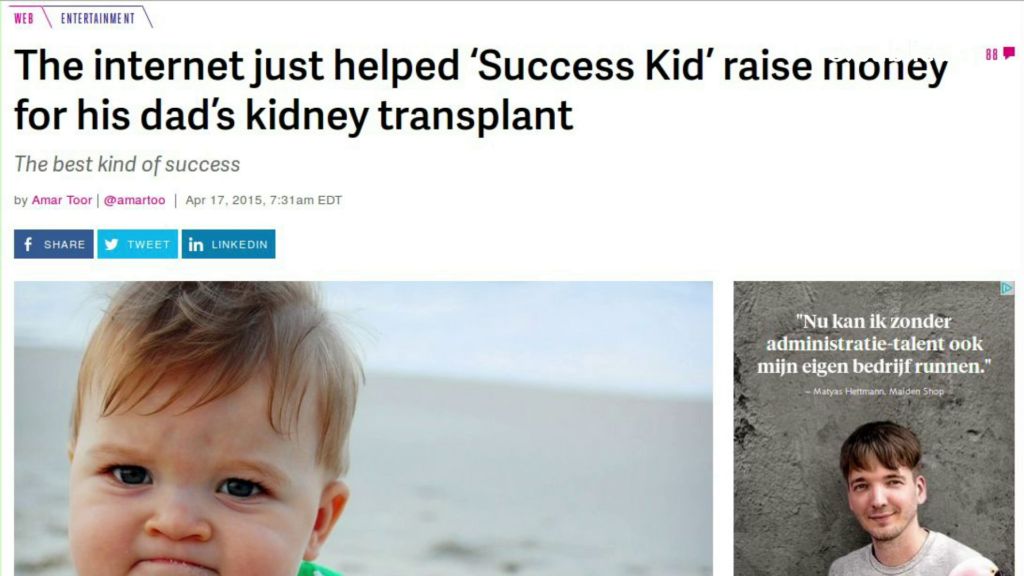Silvio Lorusso: Hello everyone. Thanks for being here. Today, I’m going to talk about a few ideas related to the entreprecariat, a concept I’ve been trying to articulate for some time now.
I’d like to start by saying something on how this interest came about. Not so long ago, I got a three-year research scholarship, which among other things provided me with a certain degree of stability, characterized by a rarely long temporal horizon. Despite this being an obvious exception, my relative stability felt normal to me. And from this vantage point I could perceive all the “short intention spans” of my friends and colleagues as a structural aberration.
All of this changed when the scholarship was coming to an end. This is when I felt the full weight of reality all at once.
From now on, you will be in the grip of a human emotion that the good Lord, or more likely his nemesis, created just for entrepreneurs.
Wilson Harrell, Entrepreneurial Terror, Inc. Magazine, 1987 [presentation slide]
At the time, I didn’t know exactly how to describe what I was going through. Then while I was delving into entrepreneurship, I stumbled upon an old Inc. article by Wilson Harrell. Here, this successful entrepreneur described a specific feeling that only entrepreneurs were supposed to experience. Wilson Harrell named this emotion “entrepreneurial terror.” And, even though I had nothing to do with entrepreneurship in the strict sense, I could deeply relate with the roller coaster ride described by Harrell.
In order to demonstrate how this peculiar form of terror is so common among entrepreneurs, Harrell suggested to go to one of them and ask, “So how are you coping with terror?” According to him, such a question would trigger some surprise. Yet it would be immediately understood by the fellow entrepreneur. Now, I believe that the reaction of many of my friends, especially the ones involved in academia or in the creative industries, wouldn’t be that different.
Today, exactly thirty years after the publication of Harrell’s article, any kind of human activity or endeavor is understood through an entrepreneurial perspective. This is partially due to the propaganda carried out by professional entrepreneurs themselves. Like Reid Hoffman, co-founder of LinkedIn, who introduced his book by quoting Muhammad Yunus. Here, the Bangladeshi social entrepreneur declares, “All human beings are entrepreneurs. When we were in the caves, we were all self-employed, finding our food, feeding ourselves. That’s when human history began. As civilization came, we suppressed it. We became labor because they stamped us, ‘You are labor.’ We forgot that we are entrepreneurs.”
So this is how entrepreneurship turns into entrepreneurialism, an ideology that naturalizes risk-taking and self-determination. And while doing this, it expands entrepreneurial terror to the whole social spectrum.
Both precarity and entrepreneurialism are impalpable yet constitutive elements of the current social reality. They form the social atmosphere.
[presentation slide]
As you probably know, there is another term that is often associated with this now-widespread form of terror. The word is “precarity.” While precarity indicates the very content and context of this fear, entrepreneuralism is meant to offer an escape from that. Both are constitutive elements of the current social reality.
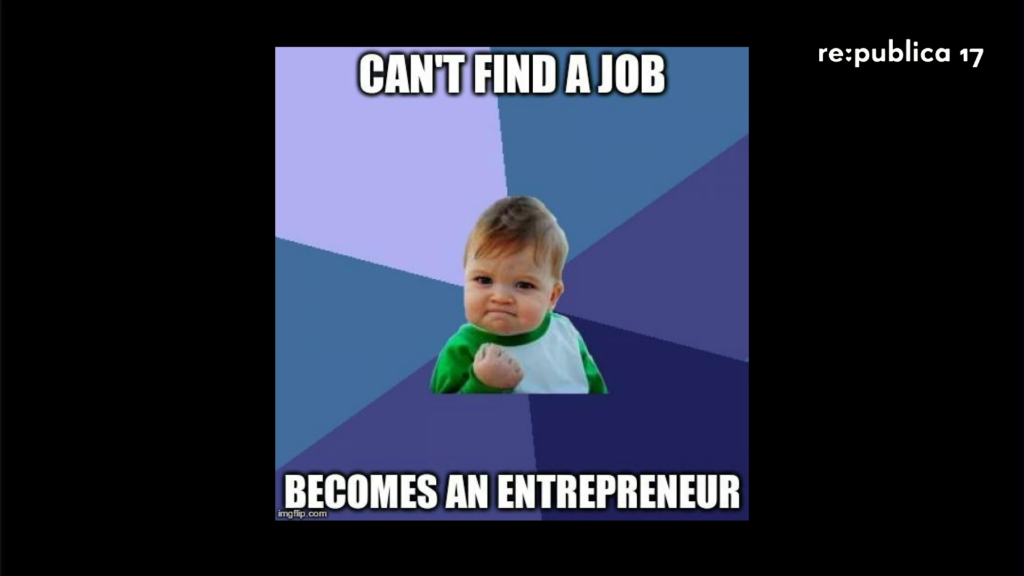
Here is a one-liner that highlights the relationship between precarious work and entrepreneurialism. “Can’t find a job, becomes an entrepreneur.” As I’ll show you afterwards, the choice of the “Success Kid” meme is not accidental.
The reciprocal influence between an entrepreneurialist regime and pervasive precarity, their ambivalent coexistence, is what the concept of the entreprecariat refers to. To articulate some of the ways in which this mutual influence takes place, I’d like to introduce what I would call a postulate of the entreprecariat. So here it is: The more precarity is present, the less entrepreneurialism is voluntary.
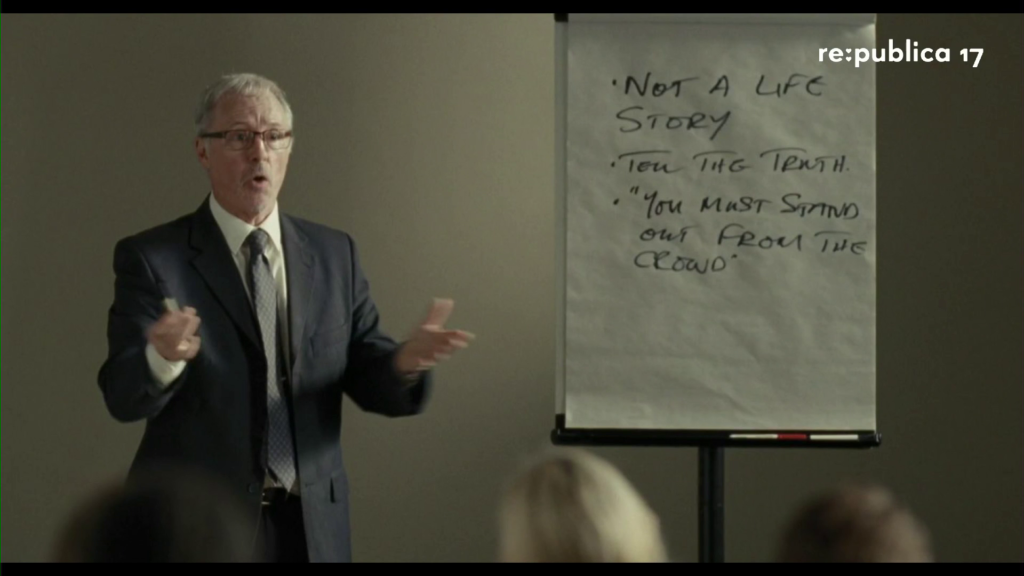
The postulate is well exemplified by a scene of I, Daniel Blake, a 2016 movie by Ken Loach on the nightmare of workfare in the UK. Here, a group of unemployed people is required to take a course to improve their chances to find a job. According to the course coach, in a context characterized by the scarcity of available positions, it is imperative to stand out from the crowd. This attitude implies the understanding of individuals as competitors, as micro-companies constantly seeking attention through personal publicity.
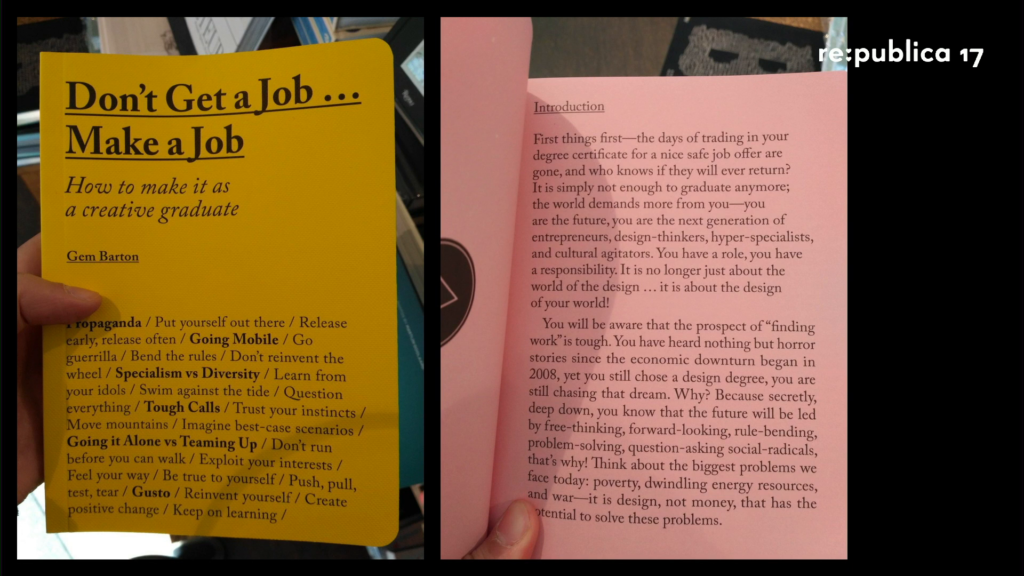
The paradigm of a person as micro-company is so pervasive to be almost invisible. We find it for instance in the field of creative industries, where a mongrel literary genre mixing self-help and creative inspiration is emerging. A case in point is this book, which adapts a series of generic job-seeking platitudes to the target group of creative graduates. In its introduction, we encounter another peculiar aspect of the entreprecariat, a cognitive dissonance in which subjects face the hardships of finding a job while at the same time being expected to address the biggest problems we face today, like poverty and war.
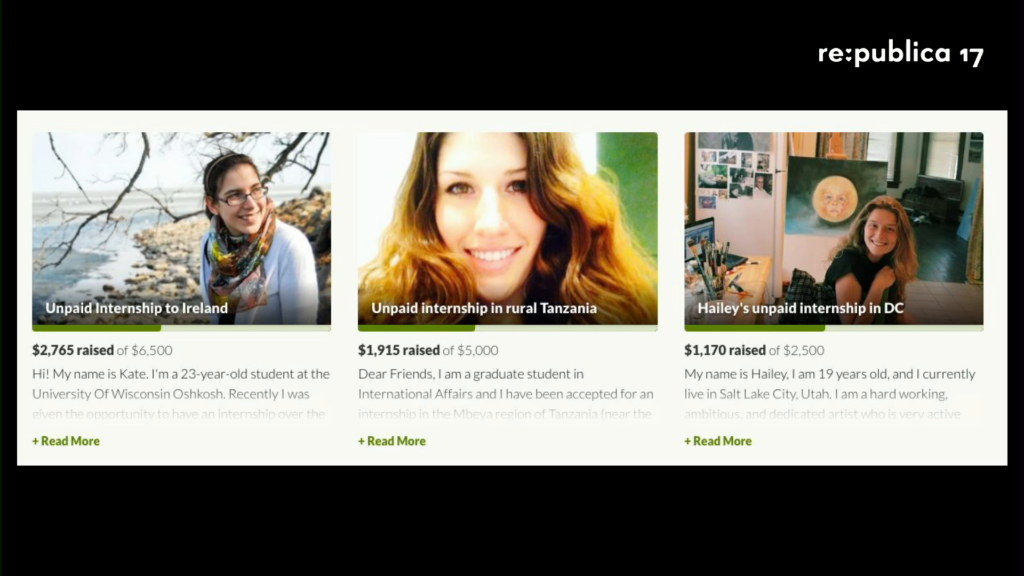
The blending of a forced entrepreneurial attitude with specific instances of precarity is particularly evident in the context of personal crowdfunding. Browsing GoFundMe, we encounter hundreds of young graduates that cannot afford unpaid internships, which often represent a necessary step to land a job. So they smile at the camera and passionately describe their interests and academic achievements while detailing their specific financial needs. They cheerfully advertise their personal burden.
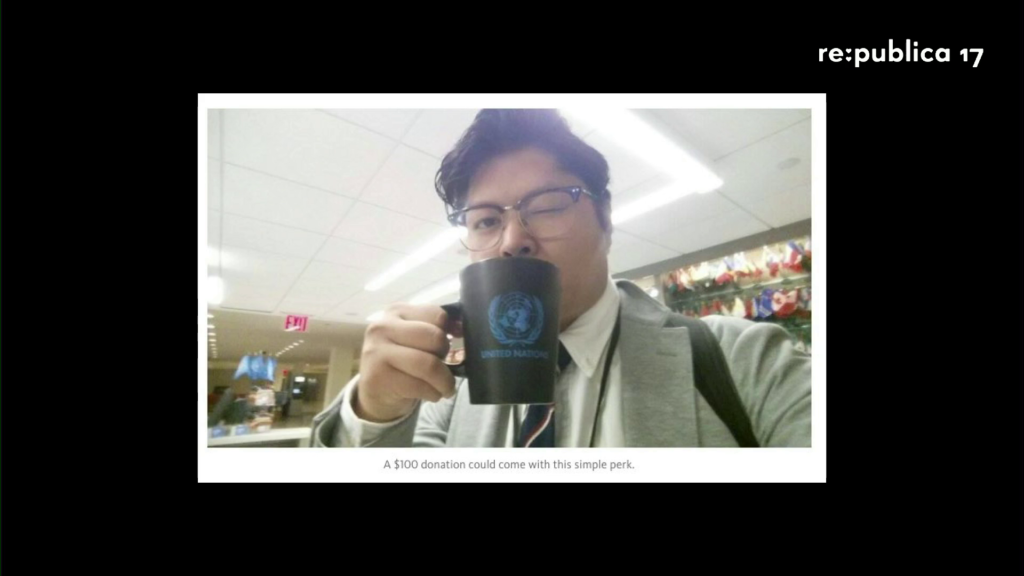
Clement Nocos is one of them. A political science graduate from Canada who got accepted for a prestigious unpaid internship at the United Nations, a “one-time-only opportunity” as he calls it. Not only did Nocos produce a somehow ironic four-minute-long video to advertise his campaign, he also conceived a series of “perks” to be offered to particularly generous donors.
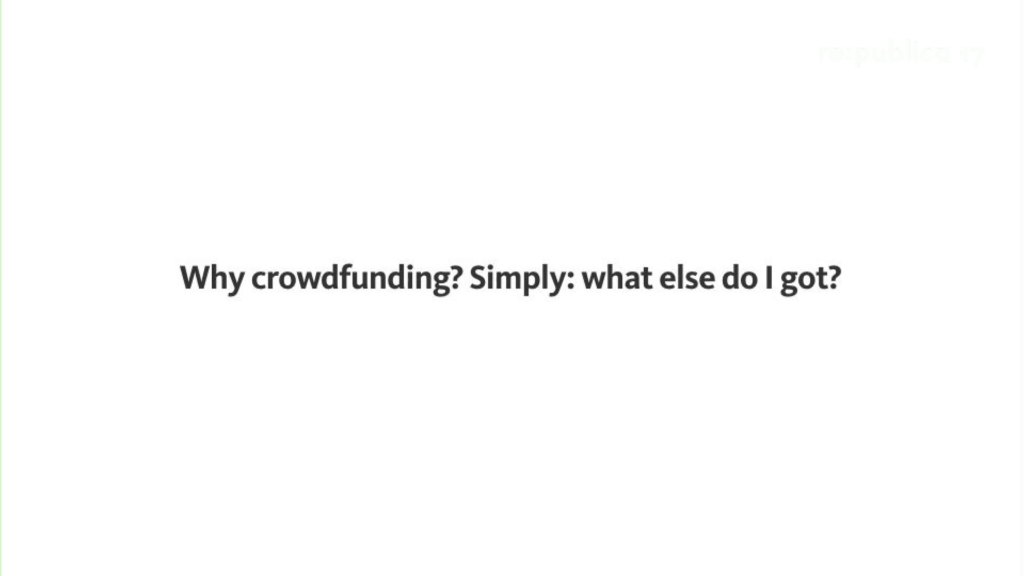
In a long post on medium.com, Nocos explained in detail the reasons and the results of his campaign. The above header is a good summary. Eventually, Nocos was able to raise less than $2,000 out of the $6,000 he asked for.
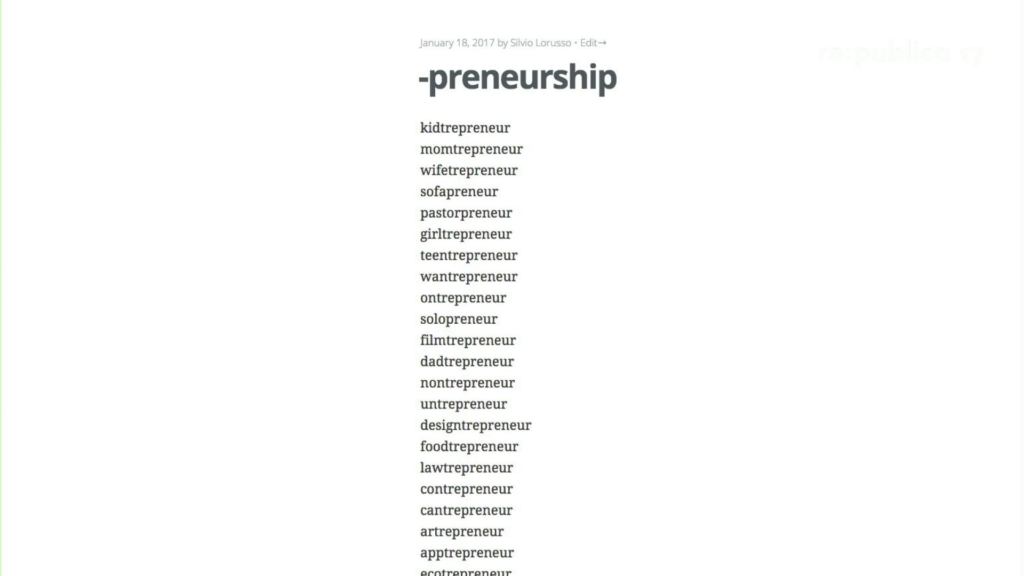
The Internet is full of portmanteau words that work in combination with the word “entrepreneur.” Recently I started to collect them, and I created a list including interesting neologisms like “sofapreneur,” “dadtrepreneur,” or even “wantrepreneur.”
Given my preoccupation with compulsory entrepreneurial endeavors resulting from different types of precarious conditions, I decided to come up with yet another blendword. A sadtrepreneur is a person that unwillingly behaves as an entrepreneur and therefore is not so happy about it.
Crowdfunding platforms like GoFundMe, YouCaring, and Generosity, are full of sadtrepreneurs. Here, the amount of people asking money for unexpected medical expenses is striking. It isn’t too much of a surprise, then, the fact that more money was raised on GoFundMe than on Kickstarter and that almost 70% of the US crowdfunding donations were offered to a person in need.
While some users fill their profile only with a short blurb, some others include professionally-shot videos or intimate pictures of their lives, sometimes depicting medical treatment.
For her campaign, Kati McFarland chose YouCaring. Kati is a young Arkansan suffering from Ehlers-Danlos Syndrome who published pictures of herself while hospitalized together with financial summaries of her medical expenses.
The three dimensions of the precarious described by political theorist Isabell Lorey coexist in these medical campaigns. First, the ineluctable precariousness of life, characterized by the unpredictability of accidents and illness.
Second, “precarity,” which is both a discursive frame to socially address precariousness and a means of creating hierarchies of need that in the case of crowdfunding are mediated by different scales of visibility.
Finally, governmental precarization, the governing and self-governing through insecurity, which includes the erosion of welfare state forms of protection like universal health care and thus implies the destabilization of the ones that require them.
The success of these personal crowdfunding campaigns is strictly related to the user’s ability to operate as a media company, acting simultaneously as a copywriter, a photographer, a social media manager, and an accountant.
Often, the platforms themselves offer tutorials and tips to improve the quality of a campaign, sometimes including extremely generic suggestions such as avoiding blurry pictures. A title needs to be catchy in order to stand out from the plethora of running campaigns. In this scenario, the access to an informal means of protection against emergencies turns into a race where online media literacy is a valuable competitive advantage.
Think of your cancer as the origin story a tech startup tells about itself on the About section of its website.
Luke O’Neil, Go Viral or Die Trying, Esquire, 2017
In a recent investigation for Esquire, journalist Luke O’Neil draws a direct parallel between medical crowdfunding and the ecosystem of tech entrepreneurship. Here, O’Neil sarcastically associates the presentation of GoFundMe users’ medical history to the stereotypical narrative of tech startups, implicitly revealing a similarity between an appeal to charitable spirits and a pitch to a venture capital firm.
While reading O’Neil’s piece, I was reminded of a campaign which effectively combined personal necessity, the amassing of relational capital given by virality, and the strategic use of media literacy. In 2015, the boy who impersonated the Success Kid meme, now 8 years old, took advantage of his online popularity to fund the transplant of his father’s kidney. Significantly, on The Verge the news was published under the category of entertainment.
I’d like to borrow for a moment the startup lingo to discuss some of the attempts to “disrupt” precarization and the dilemmas related to this effort.
Precarity signifies both the multiplication of precarious, unstable, insecure forms of living and, simultaneously, new forms of political struggle and solidarity that reach beyond the traditional models of the political party or trade union.
Rosalind Gill and Andy Pratt, In the social factory? Immaterial labour, precariousness and cultural work, 2008
While precarity is generally understood as a mixture of diverse forms of instability and insecurity, Rosalind Gill and Andy Pratt suggest that the term can also refer to original modes of political struggle.
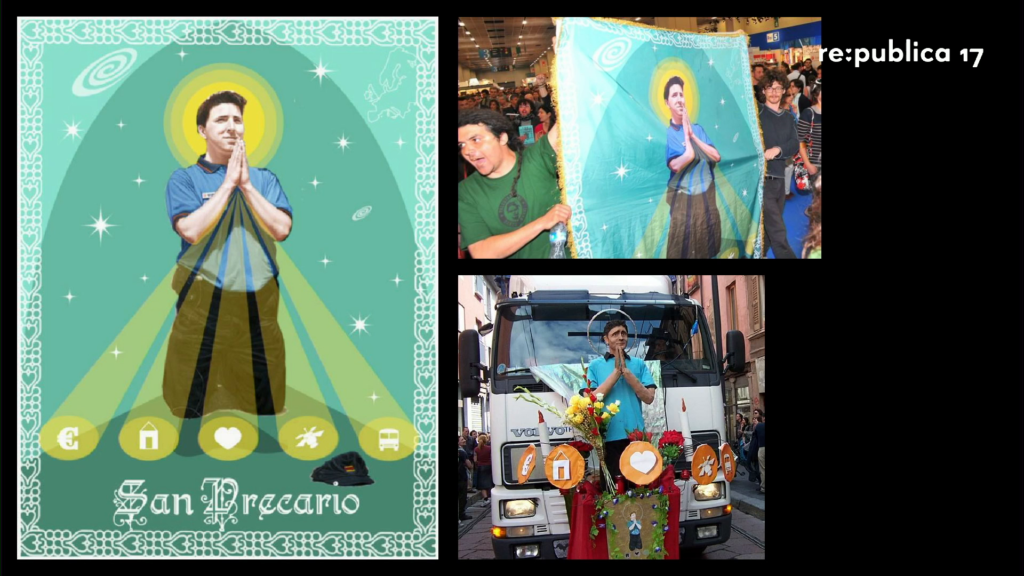
This is the case of San Precario, an icon that made its first appearance in 2004 and became an ante litteram meme against the exacerbation of labor precarity. San Precario exploited and subverted the deep Catholic roots of Italy, producing a mass of devotees and its own heretic liturgy.
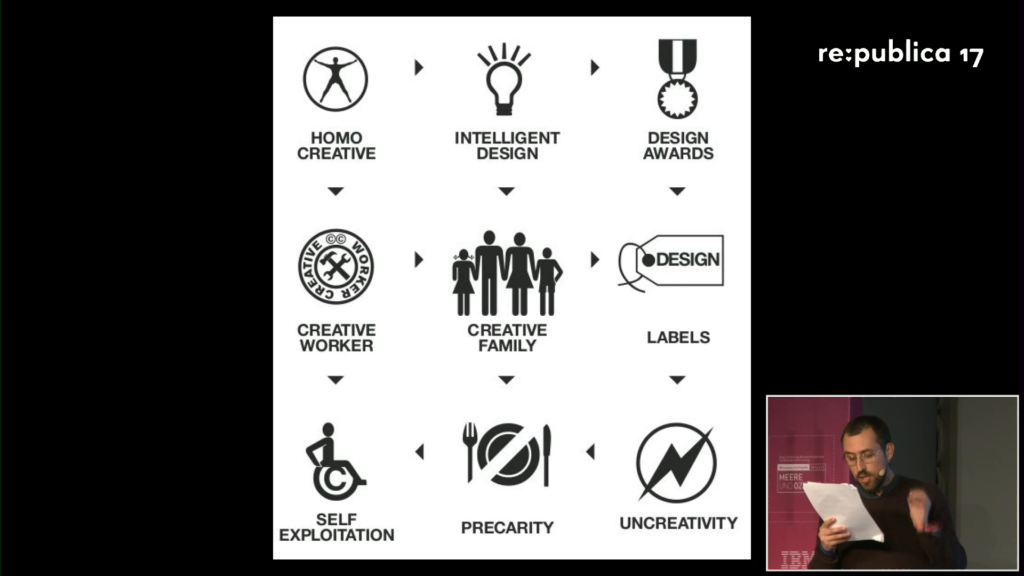
A couple of years later, the MyCreativity Network, a group formed around a series of events that took place in the Netherlands, proposed a reality check of Richard Florida’s idealistic image of the creative class. Instead of focusing on notions like empowerment and autonomy, the group discussed self-exploitation, insecurity, and the emergence of a creative underclass.
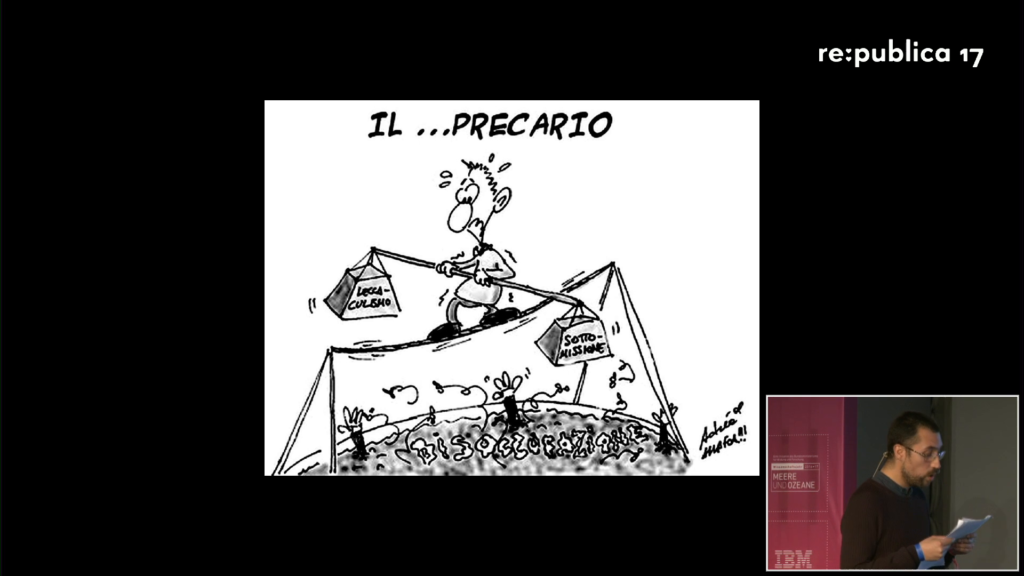
Nowadays, more than a decade after these efforts, the prevalent image of the precarious subject in the Italian media landscape is an unflattering one. The above comic strip allegorically illustrates it. Being precarious means walking on a tightrope placed above the quicksands of unemployment, having to find a balance between subjugation and deference.
Given the pervasive entrepreneurial pressure to think strategically of one’s own personal brand, building social cohesion around the acknowledgment of shared forms of precarity is not an easy task. In other words, not many people would comfortably identify as precarious on LinkedIn or even Facebook.
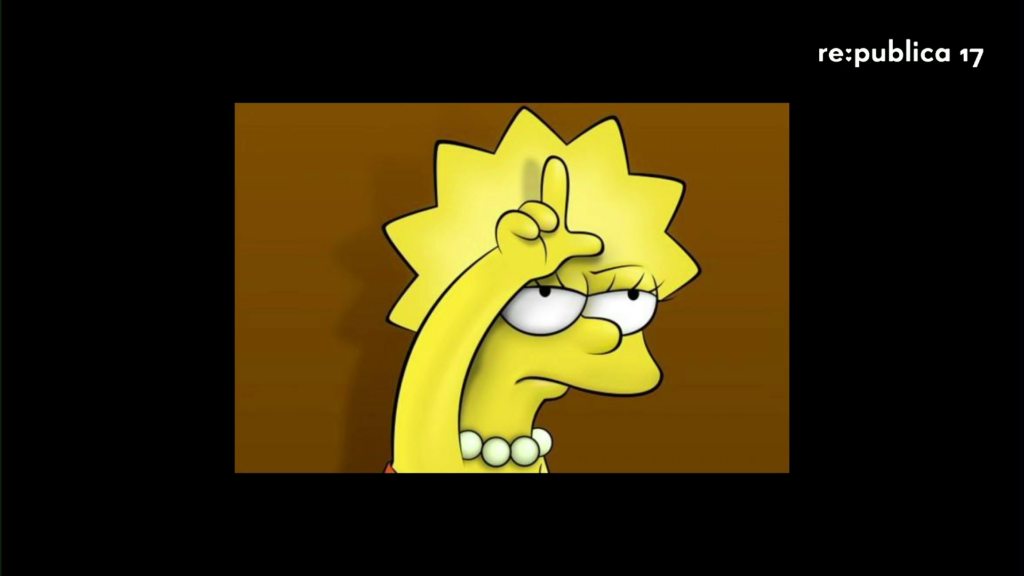
Bringing precarity to the table is often understood as whining, and as we are taught, whining is for losers. These losers are generally the so-called millennials, also categorized as lazy and entitled. Millennials should really take a leaf from the book of actual entrepreneurs, who never complain and get things done. To summarize, the state of things causes people not to come out as precarious, but to be outed as one.
Is there a possibility to combine compulsory creative entrepreneurialism with genuine expression of precarity? In other words, is it possible to do PR through precarity and against precarization?
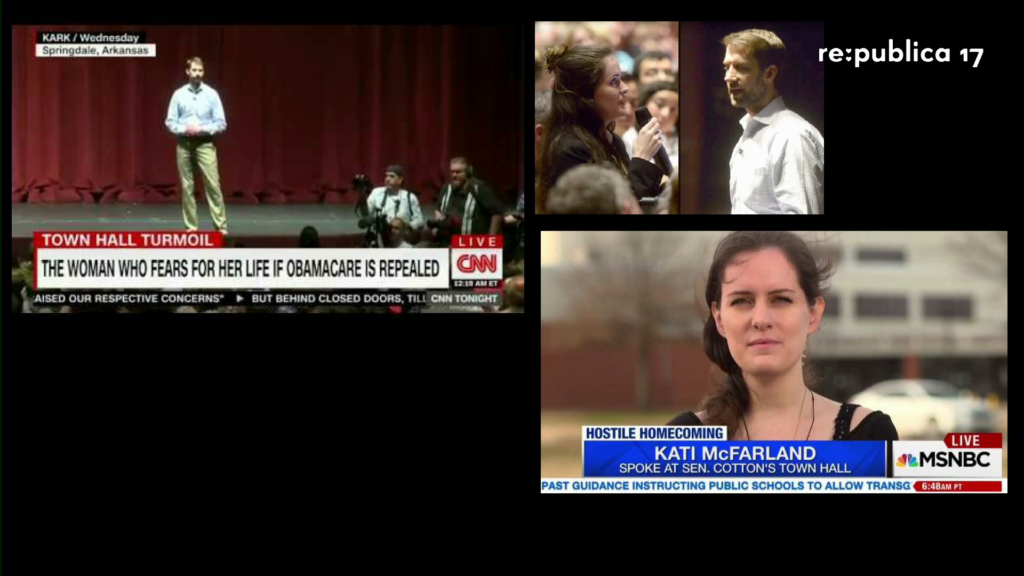
To answer this question, I’d like to go back to the the crowdfunding stories I mentioned. Last February, Kati McFarland attended a public meeting with a senator who advocated the repeal of the Affordable Care Act. She took the floor and explained that without such measures, her life would be at risk. Of course, the media attention that McFarland got thanks to her intervention had a positive effect on the donations to her campaign. But at the same time, her story became somehow symbolic of all the patients endangered by ill-advised policy making.
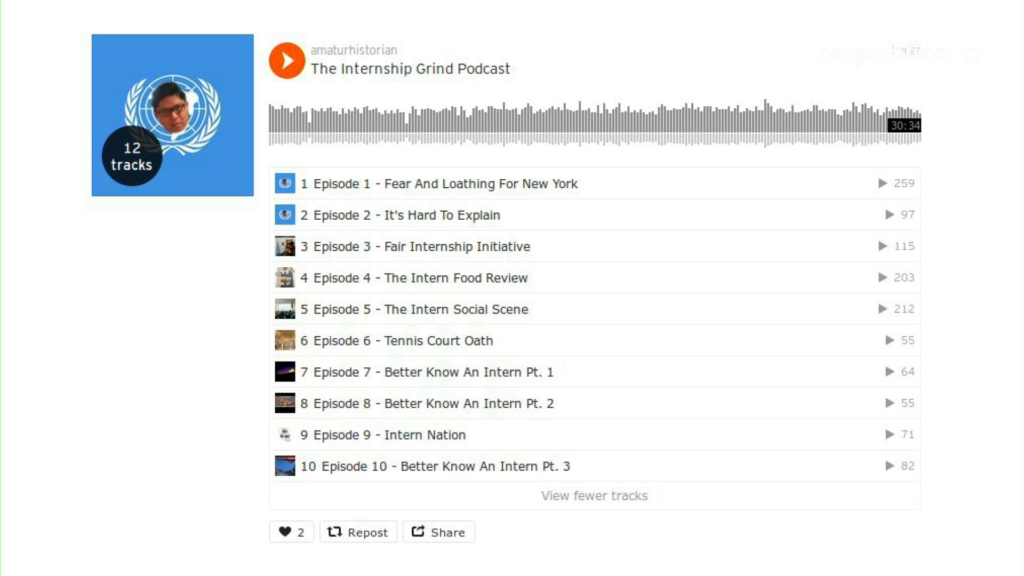
Needing to differentiate himself from the other graduates campaigning on crowdfunding platforms, Clement Nocos again, decided to create a podcast. Initially focused on the grinds of his personal journey as an intern in New York City, the podcast soon turned into an instrument of advocacy against unpaid internships.
In one of the latest episodes, Nocos interviewed Nathalie Berger and David Leo Hyde, a duo that organized an extremely effective action (probably many of you know this) to call attention to the issue of unpaid internships. Given the steep cost of living in a city like Geneva, Leo would carry out his work as an unpaid intern at the United Nations while living in a tent.
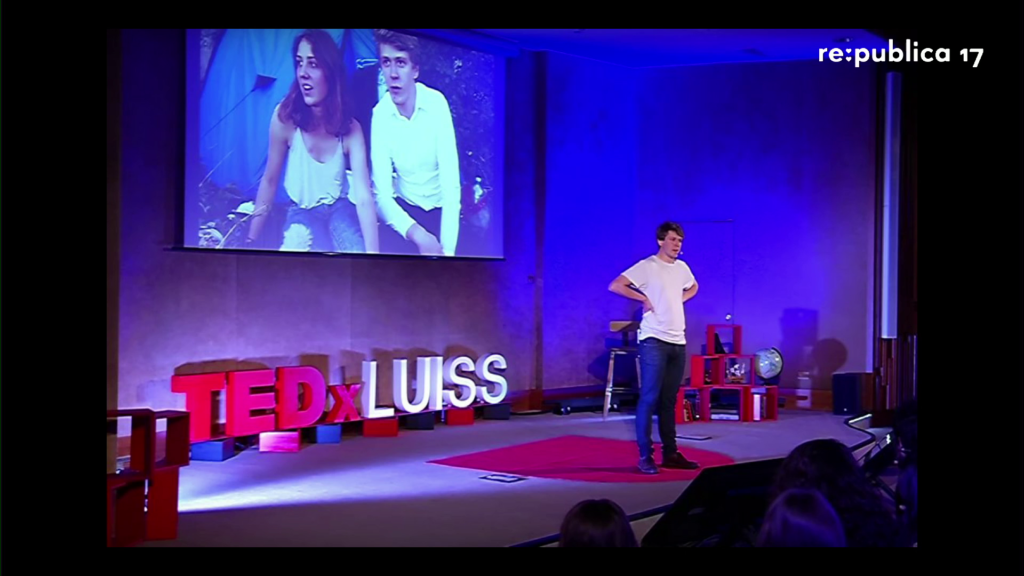
David Leo Hyde, We will not be the unpaid intern generation any longer
Here we see Hyde, who is currently shooting a documentary on unpaid internships together with Berger, speaking about the action in the context of a TEDx, a conference format born in Silicon Valley and characterized by highly-recognizable aesthetics and a very profitable business model.
The cases I discussed denote a high degree of ambiguity emerging when entrepreneurialism meets precarity. Far from being uniquely the result of one’s own passion, entrepreneurially-performed “creative” undertakings are increasingly becoming an obligation. More and more people reluctanctly join the ranks of the entreprecariat, a novel kind of creative underclass, whose very medium is constituted by its members’ personal necessities. Thank you.
Audience 1: Could you say a bit more specifically why is this entreprecariat emerging right now. Like, why didn’t it emerge twenty years ago? Do you think the main driver was the Internet, or are there other factors?
Silvio Lorusso: Thank you for this question. I mean, it’s not easy to somehow define a clear sort of linear history of this entrepreneurial pressure. But already in the 70s, Michel Foucault was speaking about the entrepreneur of the self.
And I think that because of the crisis, and as well the kind of big value that now has in terms of media presence like entrepreneurship on big platforms like The New York Times— So we’re always somehow presented with the work of genius entrepreneurs. So this became a very clear role model. And I think a lot of difference made the fact that these entrepreneurs are not anymore the gray sort of entrepreneur just managing capital, but they are also the ones bringing creative disruption. And again we find a link between creativity and entrepreneurship that somehow emerges then in a grassroots level as a sort of enforcement.
Audience 2: I missed the first five minutes, so maybe you mentioned this already so I’ll try to give the question anyway. What do you think of the popularity of solutions like Uber and all of the sharing economy companies that empower people to become entrepreneurs on their own terms with something they already own—which might be a car, an aparment for Airbnb—and so to say subsidize something that is not producing any value if it stays there—like a car or an apartment. And that’s the easy way this company will allow you to become an entrepreneur. But you’re not, because you’re doing something that would be an employee position in other times. So, where do you see this going in the future? These sharing economy companies, what is their role in this, if there is one?
Lorusso: Well, I’m not very experienced with the case of Uber. But I have several friends who work in—I live in Rockford—and work for Deliveroo. And what I see there is the fact that this concept of the entreprecariat, like the strict combination, happens also at the legal level. Because they are actually self-employed.
So it’s not just a matter of propaganda, but there is something happening also in the legal way as one person represents itself. And I think that is the most dangerous aspect going on right now. Like, normalizing self-employment, even if there is clearly a subordinate relationship with a platform. So I would say I’m wary of both the narrative and the kind of legal substratum that is defining those new practices.
Audience 3: Is there still hope? I mean, so many people dream to become fulfilled. Is there still a free market? Or is it us applying for the money of old men to fulfill their dreams in the Internet?
Lorusso: Okay. I will maybe keep it to the first part of the question. Because of course I was aware of presenting a sort of grim landscape. But I would like to bring attention to the cases I showed, like with crowdfunding. I think those little individual attempts to bring a more structural condition, within let’s say the drama of having to ask money for your medical situation, is something very [heroic?]. And I think those cases show that… I mean, there’s not so much of a possibility of withdrawal, but we need to sort of embrace the kind of ambiguity of being within this kind of setting but still bringing up not only our own demands but a more structural one. So that is where I see the hope. It’s not like fighting the system from within, but I think those stories are somehow inspiring, to use another term borrowed from Silicon Valley, like misuse of it. Thank you for the question.
Further Reference
Collected writings on The Entreprecariat at Institute of Network Cultures
